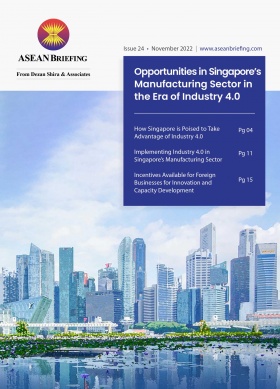Singapore Budget 2023: Impact for Employees
Singapore’s 2023 budget provides an array of support for local employees. This includes co-funding workers’ wages and encouraging the upskilling and reskilling of employees.
Singapore’s Budget 2023 of S$104.2 billion (US$78.1 billion) was unveiled on February 14, 2023, focused on seizing new opportunities amid global uncertainty and building new capabilities for Singaporeans.
Budget 2023 provides a wide range of support to upskill and reskill Singaporean workers and keep the local workforce resilient amid what is anticipated to be another challenging year. Core inflation is expected to average between 3.5-4.5 percent in 2023, compared with 4.1 percent in 2022.
Further, the IMF sees growth slowing to 1.5 percent for 2023, in line with slower growth in most of Singapore’s major trading partners, such as the United States and Europe.
Through Budget 2023, the Singapore government will help co-fund wages for lower-wage workers, extend credit support for the hiring of senior workers, fund industry-relevant training, and facilitate job matching.
Budget 2023 also issues an array of support for Singapore-based businesses, such as tax deductions for research and development and innovation.
Jobs-skills integrators
The government will appoint jobs-skills integrators as ‘labor market intermediaries’. They will collaborate with businesses, industries, and training employment facilitation partners to optimize or develop new training programs for Singaporean workers.
As such, the jobs-skills integrators will identify the manpower and skills gap in an industry and ensure that any training program translates to better employment and earnings for Singaporean workers. The scheme will be piloted in the retail, wholesale trade, and precision engineering sectors. The first jobs-skills integrator to be appointed is Nanyang Polytechnic School of Engineering.
Top-up of the progressive wage credit scheme
This scheme was introduced in Budget 2022 in which the government will co-fund the wages of lower-wage workers. Under Budget 2023, government spending has been enhanced and the scheme topped up by S$2.4 billion (US$1.7 billion).
The government will co-fund 75 percent of the gross monthly wage of workers earning S$2,500 (US$1,864) for 2023; an increase from the current 50 percent.
Under the second tier of support, the government will co-fund 45 percent of the gross monthly wage of workers earning more than S$2,500 (US$1,864) and up to S$3,000 (US$2,237) for 2023 – an increase from the current 30 percent co-funding support.
Extension of the senior employment credit scheme
The Ministry of Manpower is extending the senior employment credit scheme from 2023 to 2025. The scheme enables the government to provide wage offsets for employers who hire Singaporeans aged 60 and above and earn S$4,000 (US$2,982) per month.
Extension of the part-time re-employment grant
This scheme provides businesses funding support of up to S$125,000 (US$93,186) to commit to a part-time re-employment policy for senior workers.
The scheme has been extended to 2025 under Budget 2023.
Increase in CPF monthly salary ceiling
The Central Provident Fund (CPF) monthly salary ceiling will be increased in stages from September 1, 2023, to Jan 1, 2026.
The CPF is the obligatory savings and pension plan for Singaporeans and permanent residents that fund their retirement, healthcare, and housing needs in the country.
The increased ceilings will be implemented in four stages:
- September 1, 2023 – the monthly salary ceiling will be increased to S$6,300 (US$4,700);
- January 1, 2024 – the monthly salary ceiling will be increased to S$6,800 (US$5,072);
- January 1, 2025 – the monthly salary ceiling will be increased to S$7,400 (US$5,519); and
- January 1, 2026 – the monthly salary ceiling will be increased to S$8,000 (US$5,965);
This means that employees earning above the ceiling rate will take home a lower net salary – to set aside more for their CPF.
Currently, employees aged up to 55 contribute 20 percent of their monthly wages – or up to the monthly ceiling – to their CPF, with employers contributing 17 percent.
With each monthly contribution, the individual accumulates savings in three CPF accounts – MediSave Account, Special Account, and Ordinary Account. The allocation rates differ as the individual gets older as more is transferred to the Medisave and Special accounts.
When the individual turns 55 years of age, the amount saved in the Special Account and the Ordinary Account is transferred to a newly created Retirement Account.
Provide CPF transition support to lower-income platform workers
The government will fund up to 75 percent of the increase in the CPF contribution rates for lower-income platform workers for four years. The term platform workers refer to taxi drivers, delivery workers, and private car hire drivers.
Starting in the second half of 2024, the CPF contribution rates of platform workers will increase by around 2.5 percent per year. For CPF companies, this will increase to 3.5 percent. Only platform workers earning up to S$2,500 (US$1,864) per month will be eligible for the support.
For the first year, the government will fund 75 percent of the increase in the CPF rates. This is reduced to 50 percent in years two and three before being reduced further to 25 percent in year four.
About Us
ASEAN Briefing is produced by Dezan Shira & Associates. The firm assists foreign investors throughout Asia and maintains offices throughout ASEAN, including in Singapore, Hanoi, Ho Chi Minh City, and Da Nang in Vietnam, in addition to Jakarta, in Indonesia. We also have partner firms in Malaysia, the Philippines, and Thailand as well as our practices in China and India. Please contact us at asean@dezshira.com or visit our website at www.dezshira.com.






